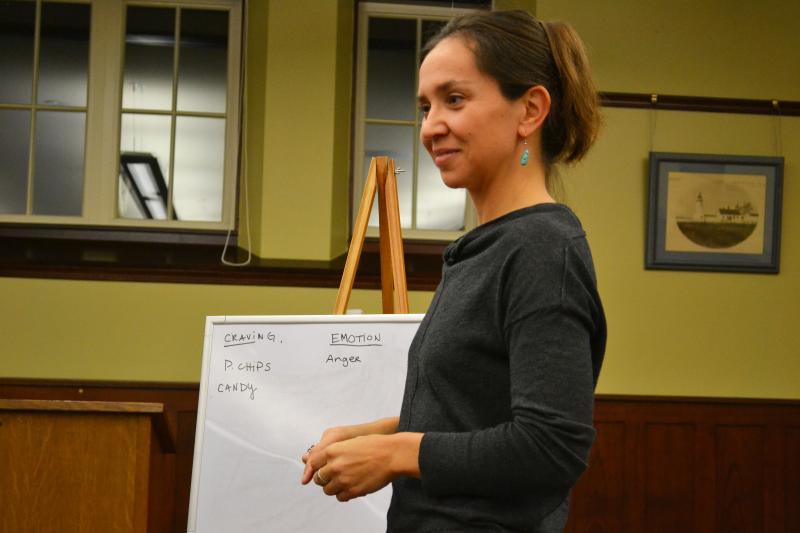Johanna Voss breaks down the science of cravings
How many times have you felt tempted by that pint of ice cream in the freezer, or the bag of potato chips in the pantry? Health coach Johanna Voss believes these cravings are a good thing.
Craving sugars or salts is, according to Voss, a way for our bodies to tell us when they need something.
On Nov. 22, Voss’s workshop, “Deconstructing Cravings,” at the Mattapoisett Library broke down the causes of cravings and offered tips on how to avoid temptation.
The main cause of cravings, she said, is dehydration. The average American, she said, consumes roughly 120 lbs of sugar per year. When compared with the average of 4 lbs per year in the 1800s, this she said, is hugely impacting what we crave.
“We as Americans are deeply dehydrated,” she said. “Our liquids come in soda which is all sugar.”
Voss said her Number 1 tip for fighting the cravings dehydration may create is to drink more water.
“Most people I talk to have sweet cravings,” Voss said. “Sugar is a drug and it has that addictive quality. It’s in everything so whether you realize it or not, your body craves it.”
Drinking a glass of water before giving in to cravings, she said, will help balance out our bodies that are lacking nutrients due to eating so much processed and refined foods. After drinking the glass of water, Voss said, wait ten minutes to see if you still have the same craving. This will not work 100 percent of the time, she said, but added that most of her clients find they were not really hungry afterwards.
“It’s not what you do once in a while that’s going to kill you, it’s what you do all of the time,” Voss said.
Indulge every now and then, she added, but be mindful of your body when you do.
Besides drinking water, she said, keeping a cravings journal also can help identify what emotions people are feeling the moment they have certain cravings.
For who eat based on what emotion they are feeling at the time, she added, a journal can help identify harmful behaviors.
“Most people don’t trust their body,” Voss said. “Our bodies are fabulous machines. All these things are happening inside of us without our paying attention. Our bodies are constantly trying to find that equilibrium.”















